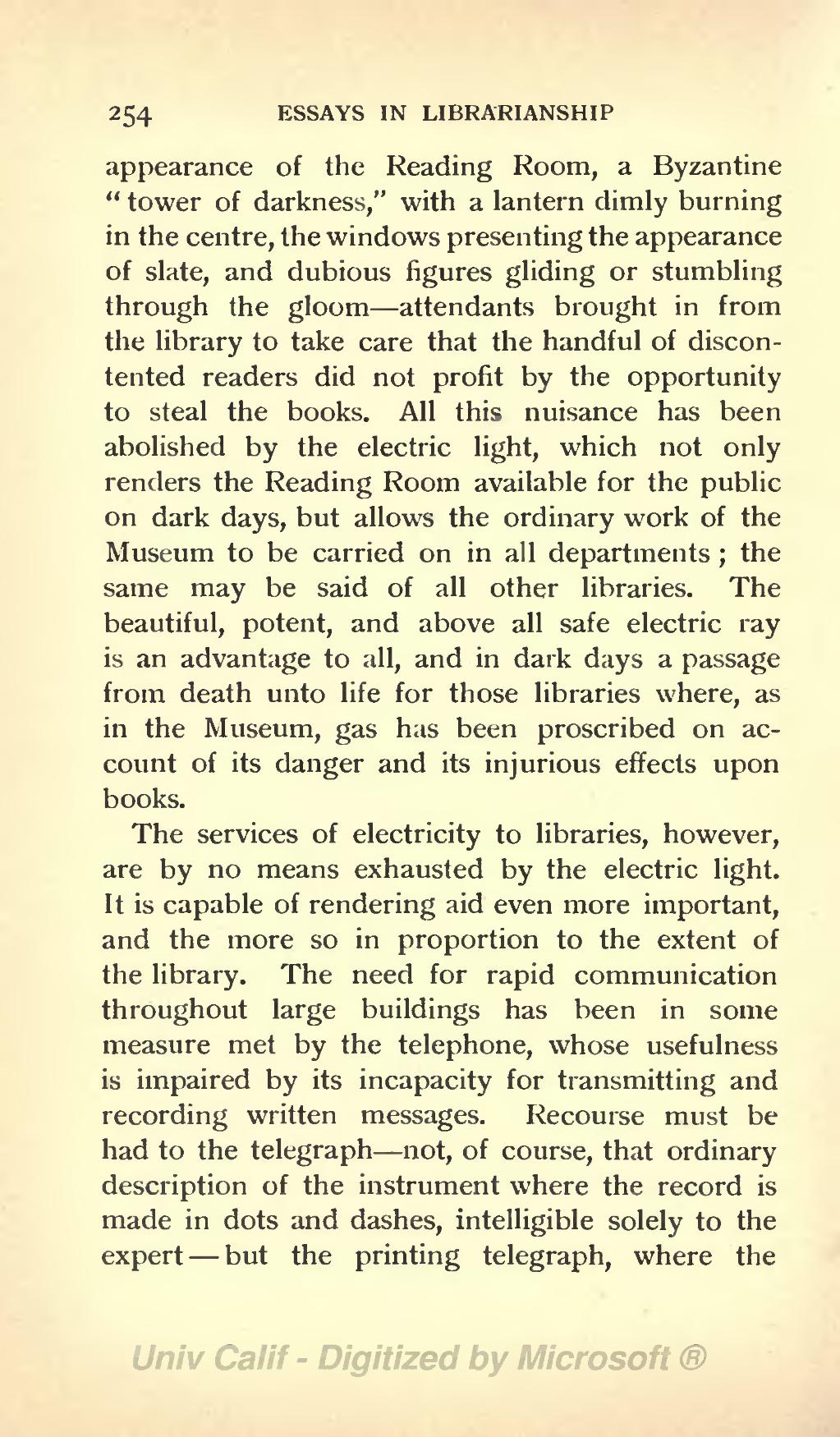appearance of the Reading Room, a Byzantine "tower of darkness," with a lantern dimly burning in the centre, the windows presenting the appearance of slate, and dubious figures gliding or stumbling through the gloom—attendants brought in from the library to take care that the handful of discontented readers did not profit by the opportunity to steal the books. All this nuisance has been abolished by the electric light, which not only renders the Reading Room available for the public on dark days, but allows the ordinary work of the Museum to be carried on in all departments; the same may be said of all other libraries. The beautiful, potent, and above all safe electric ray is an advantage to all, and in dark days a passage from death unto life for those libraries where, as in the Museum, gas has been proscribed on account of its danger and its injurious effects upon books.
The services of electricity to libraries, however, are by no means exhausted by the electric light. It is capable of rendering aid even more important, and the more so in proportion to the extent of the library. The need for rapid communication throughout large buildings has been in some measure met by the telephone, whose usefulness is impaired by its incapacity for transmitting and recording written messages. Recourse must be had to the telegraph—not, of course, that ordinary description of the instrument where the record is made in dots and dashes, intelligible solely to the expert—but the printing telegraph, where the

